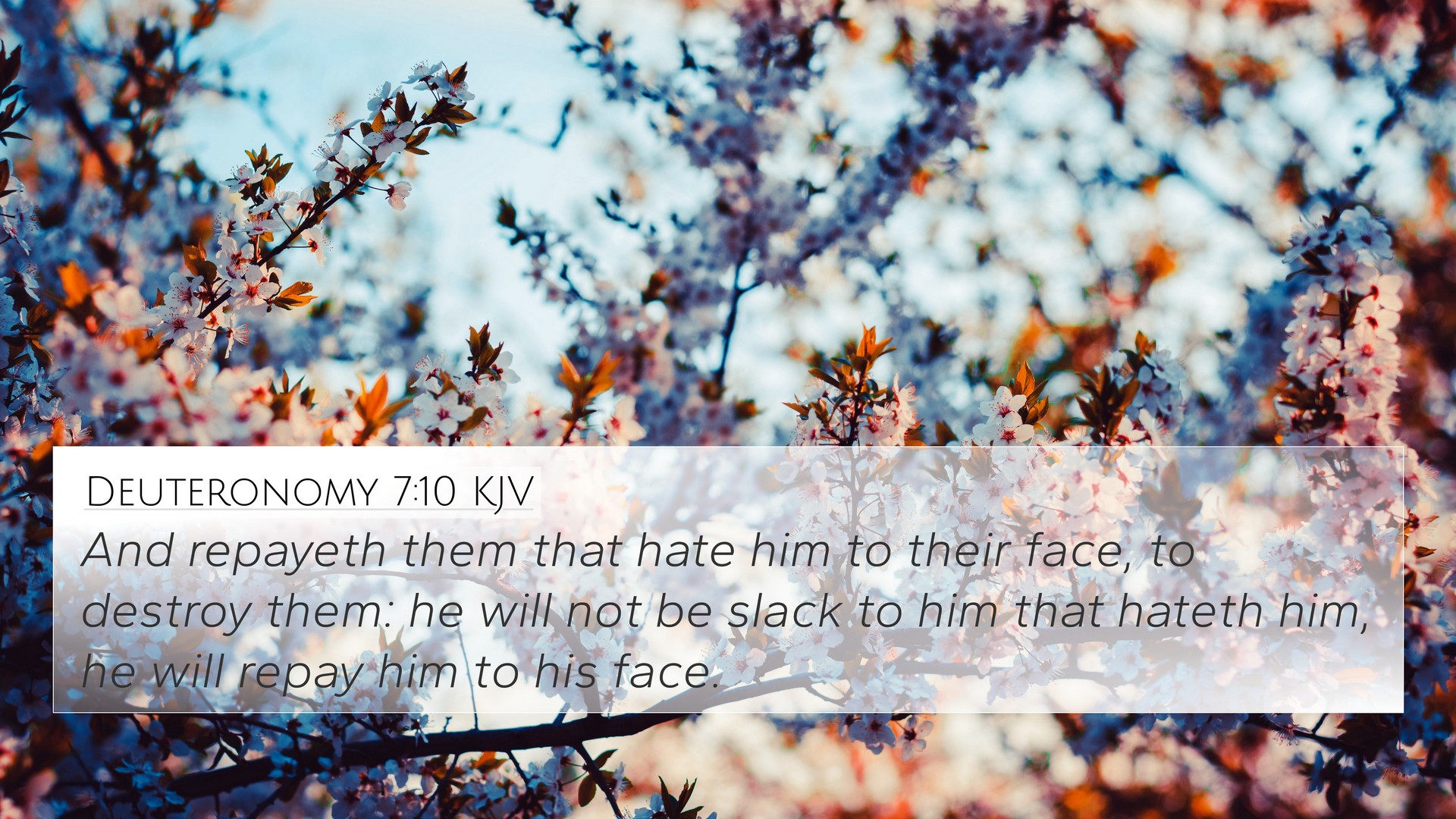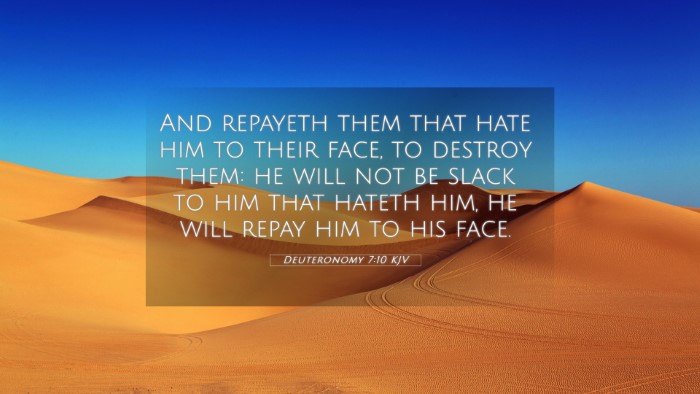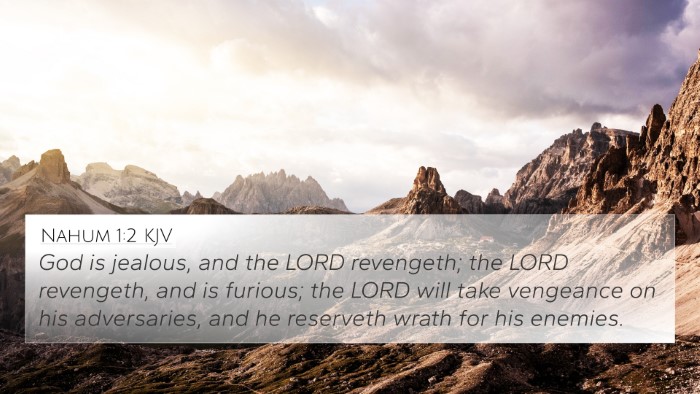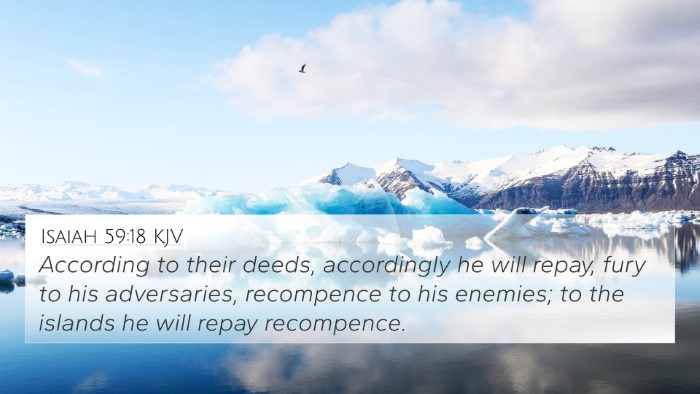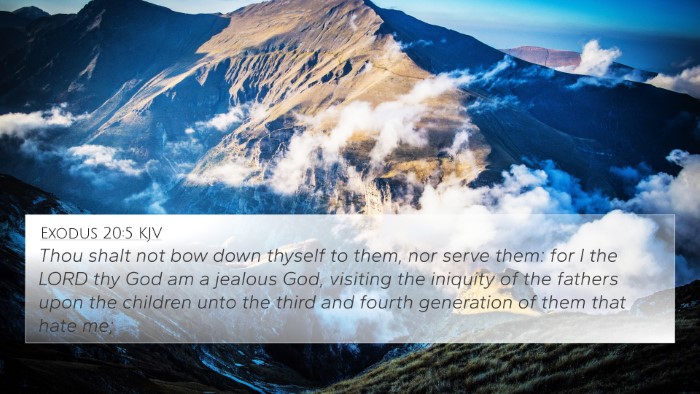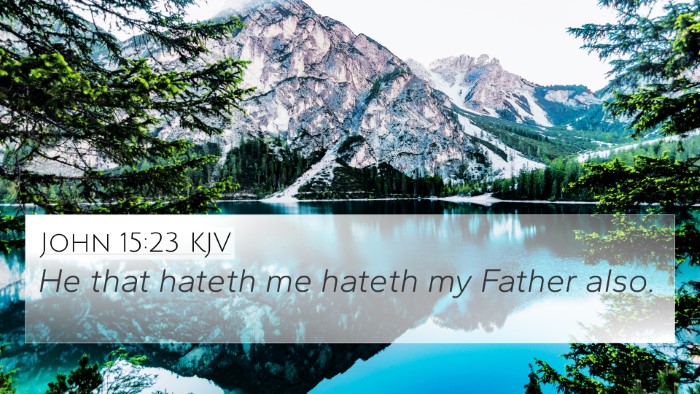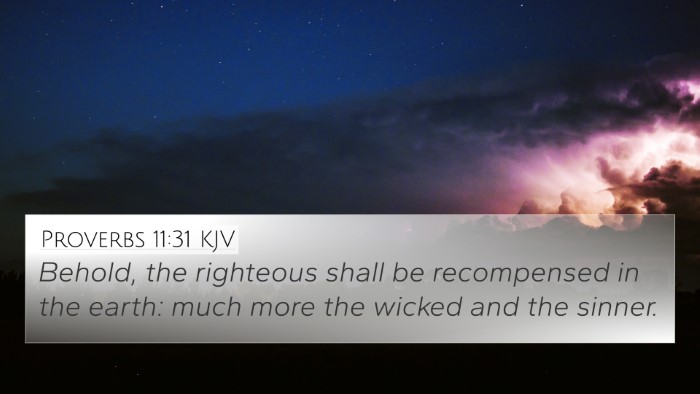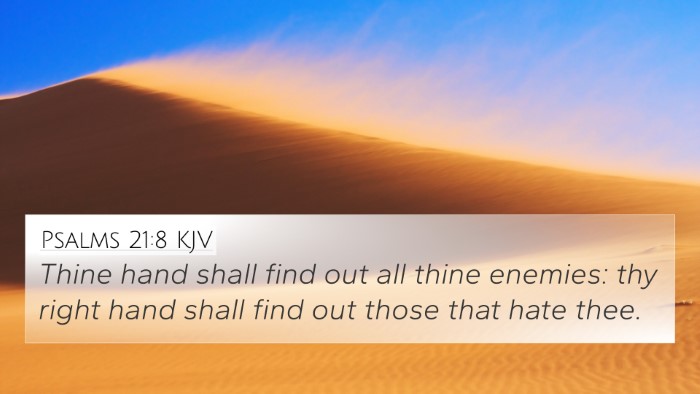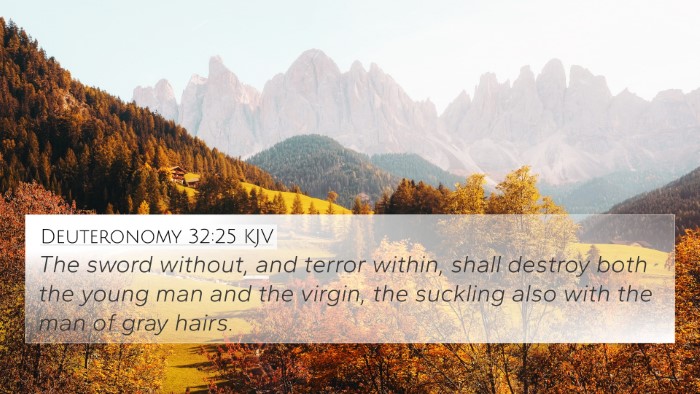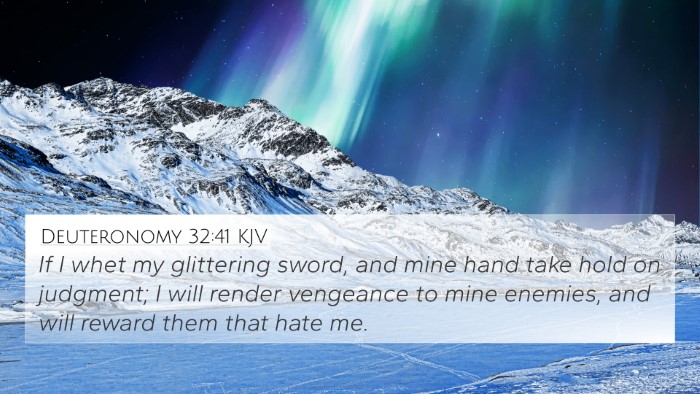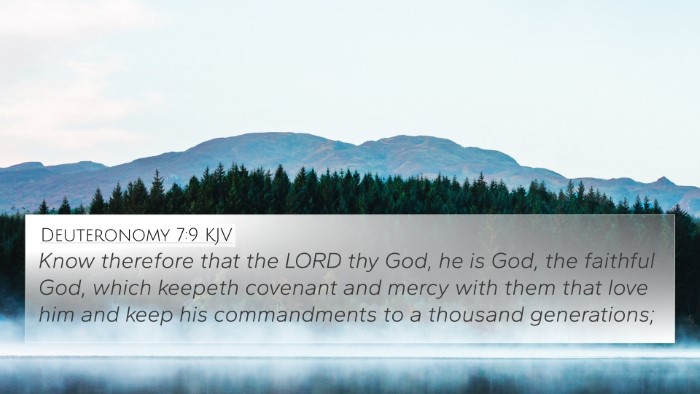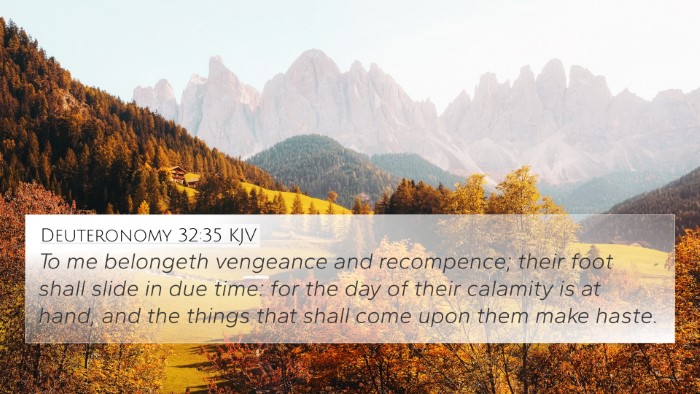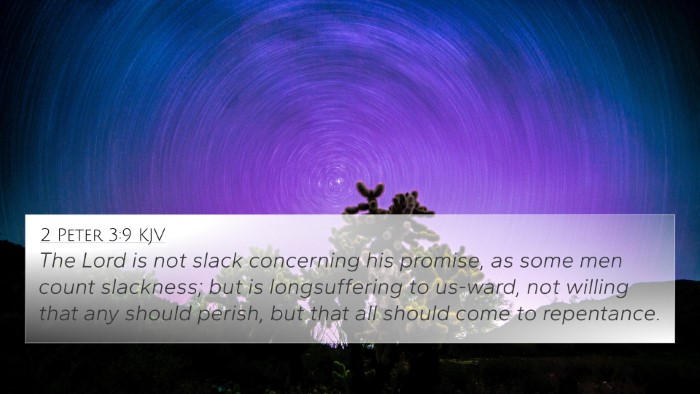Bible Verse Meaning for Deuteronomy 7:10
Deuteronomy 7:10 (KJV): "And repayeth them that hate him to their face, to destroy them: he will not be slack to him that hateth him, he will repay him to his face."
Summary of Meaning
This verse emphasizes the justice of God in dealing with those who hate Him. It highlights God's commitment to repaying those who oppose Him and demonstrates His active role in maintaining divine justice. There is a clear differentiation between those who revere God and those who reject Him, with consequences laid out for both. This fits into the broader theme of covenantal faithfulness observed in the Book of Deuteronomy.
Insights from Public Domain Commentaries
Matthew Henry's Commentary
Matthew Henry explains that this verse serves as a warning about the severity of God's judgment on those who are antagonistic toward Him. Henry conveys the idea that despite God's mercy, the rebellion of the wicked will face inevitable consequences, making God seem both a loving protector and a righteous judge. He emphasizes that God's judgments are not arbitrary but grounded in His divine nature and covenant with Israel.
Albert Barnes’ Notes on the Bible
Albert Barnes discusses the nature of God as a covenant keeper who rewards faithfulness and punishes transgression. He suggests that this principle reflects not only God's justice but also His faithfulness to His people, ensuring that their enemies do not prosper. Barnes invokes cross-references to illustrate God's dealings with nations throughout the Scriptures, indicating a consistent pattern of divine retribution toward those who oppose Him.
Adam Clarke’s Commentary
Adam Clarke elaborates on the implications of God's wrath toward those who hate Him. He accentuates that the Hebrew text suggests a direct confrontation, underscoring that God directly addresses adversaries. Clarke distinguishes the nature of God's response, indicating it is not mere punishment but an active opposition to sin and unrighteousness, affirming God's integrity in maintaining justice.
Bible Verse Cross-References
- Exodus 20:5 - "Thou shalt not bow down thyself to them, nor serve them: for I the LORD thy God am a jealous God, visiting the iniquity of the fathers upon the children unto the third and fourth generation of them that hate me." - This affirms the consequences of idolatry and enmity toward God.
- Psalm 94:23 - "And he shall bring upon them their own iniquity, and shall cut them off in their own wickedness; yea, the LORD our God shall cut them off." - Highlights divine retribution.
- Romans 1:18 - "For the wrath of God is revealed from heaven against all ungodliness and unrighteousness of men, who hold the truth in unrighteousness." - Connects the New Testament theme of divine wrath to unrighteousness.
- Romans 12:19 - "Dearly beloved, avenge not yourselves, but rather give place unto wrath: for it is written, Vengeance is mine; I will repay, saith the Lord." - Echoes the theme of God’s justice and retribution.
- 2 Thessalonians 1:6 - "Seeing it is a righteous thing with God to recompense tribulation to them that trouble you;" - Speaks to God's justice in dealing with oppressors.
- Hebrews 10:31 - "It is a fearful thing to fall into the hands of the living God." - A reminder of the seriousness of divine judgment.
- Galatians 6:7 - "Be not deceived; God is not mocked: for whatsoever a man soweth, that shall he also reap." - Reflects the principle of divine retribution.
- Matthew 25:41 - "Then shall he say also unto them on the left hand, Depart from me, ye cursed, into everlasting fire, prepared for the devil and his angels:" - Connects to the final judgment against those who reject God.
- Psalm 7:11 - "God judgeth the righteous, and God is angry with the wicked every day." - Underlines God’s constant disposition towards justice.
- Proverbs 11:21 - "Though hand join in hand, the wicked shall not be unpunished: but the seed of the righteous shall be delivered." - Emphasizes the certainty of justice against the wicked.
Thematic Bible Verse Connections
The themes within Deuteronomy 7:10 manifest throughout Scripture, particularly illustrating the concepts of divine justice and enmity toward God. The recurring narrative emphasizes the certainty of God’s retribution against wickedness, reinforcing the theme of covenantal faithfulness. By understanding this verse's connections, readers may delve deeper into the implications of divine judgment and mercy across the biblical narrative.
Conclusion: Understanding Deuteronomy 7:10
In examining Deuteronomy 7:10, we gain insights into the nature of God as a just ruler who takes seriously the actions of His creation. The warnings serve to reinforce the relationship between obedience and blessing versus rebellion and wrath. Through cross-referencing other biblical texts, one can appreciate the profound themes of justice, judgment, and the integrity of God's covenant. This verse, along with its connections to others, provides a rich foundation for understanding not just the text itself, but the very character of God as revealed throughout the Bible.
Tools for Bible Cross-Referencing
Utilizing tools such as a Bible concordance or employing a Bible cross-reference guide can greatly aid in drawing connections between verses. Understanding how to use Bible cross-references is essential for a comprehensive study. Cross-reference Bible study methods often utilize themes and parallels to link disparate scriptures, providing readers a fuller understanding of Biblical truths.
